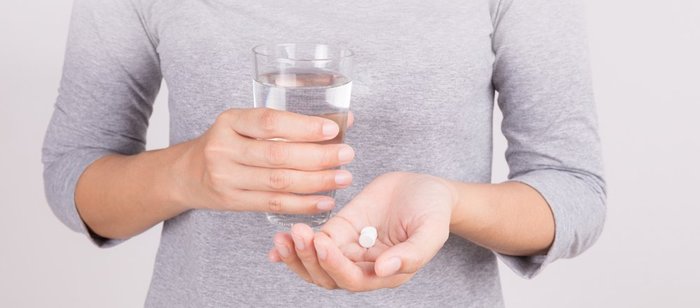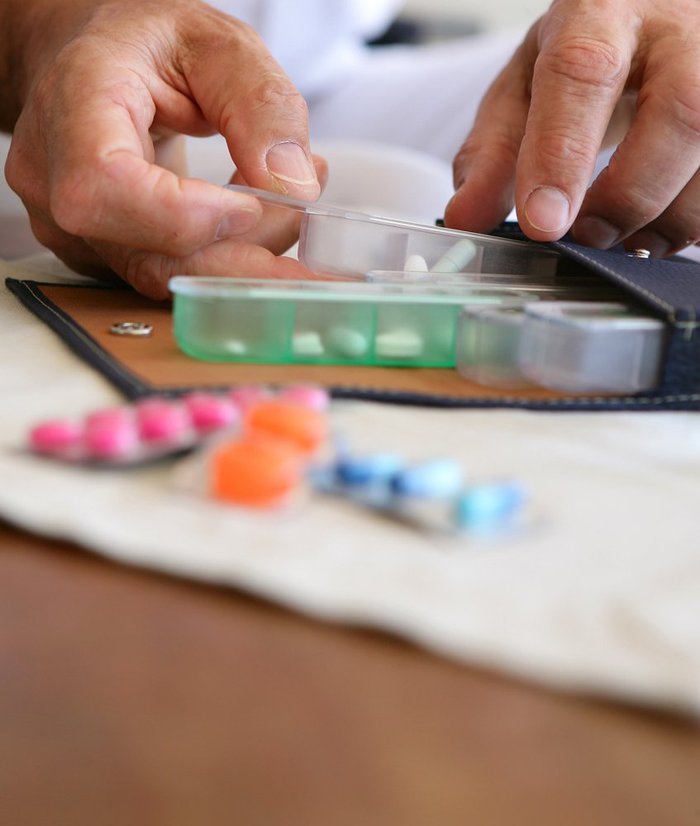If you have mild CKD (stages one to three) you may not be prescribed any specific medications for your kidneys. However, you should always tell your pharmacist that you have CKD as some medications for other conditions may harm your kidneys and could make your CKD worse.
If your CKD is more severe, you may be prescribed specific medication to treat your symptoms, to help with dialysis or to prepare you for a possible kidney transplant.
This page contains information about the different types of medications you may be prescribed. It is intended as a general overview. For specific advice, talk to your kidney team, GP or pharmacist.

What do the medicine names mean?
Most medicines have two names: the real (drug) name and the brand (company) name. On our website, the brand name will be indicated by the use of a capital first letter and a registered trademark symbol ® – like Neoral®. Doctors tend to use the real name of the drug.
Looking after your medicines
You should always store your medicines in their original packet in a cool, dry place, out of the sight and reach of children. Do not get rid of any expired or unwanted tablets by flushing them down the toilet or throwing them away. Take them to your local pharmacy who will dispose of them for you.
What types of medicines could cause problems if I have CKD?
You may have other medical conditions as well as CKD and are therefore prescribed several medicines from your doctor. Some of the medicines that can be bought over the counter from pharmacies and other shops may be unsuitable for you because of your CKD. This can include tablets, capsules, liquids, inhalers or creams that either your doctor prescribes you, or that you buy yourself.
What could happen if I take them?
- They may cause problems with other medicines you take.
- Some may make your kidney function worse.
- Some products contain things that are bad for you, like potassium, sodium or aluminium.
Always consult your GP, kidney doctor or pharmacist before changing or starting any medications.

Top tips when buying medicines
- Tell any doctor or pharmacist recommending a medicine for you about your kidney condition and the medicines you are taking.
- Only treat minor ailments by yourself for a few days. If your symptoms change, get worse or last for more than a couple of days, see your doctor.
- Be aware that some tablets your doctor prescribes can also be bought over the counter. Be careful not to take double the dose.
- If you have diabetes, please let your pharmacist know.
- Tell your pharmacist if you have had an allergic reaction to any medicine.
- Try to use the same pharmacy so the pharmacist can build up a complete picture of all the medicines you are taking. The pharmacist will then be able to provide you with the best advice.
- If you find you need to treat the same symptoms frequently, mention them to your doctor at your next visit.
- When your kidney team ask which medicines you take, include those you buy yourself.
- Be careful not to take more than one medicine with paracetamol in – do not forget that co-codamol and co-dydramol both contain paracetamol.
- Avoid effervescent tablets because they contain sodium (salt) and this can increase your blood pressure.
- If you have a transplant, do not take any indigestion medicines for one hour before or after your transplant medicines.
- Remember that although some medicines are not recommended for you to buy, they may be safe for your doctor to prescribe in specific doses.

Different medicines for chronic kidney disease
Always consult your GP, kidney doctor or pharmacist before changing or starting any medications.
Specific information on different types of medications can be found on our website and in our patient information leaflets or on the NHS Medicines A to Z website.
Medicines for anaemia and mineral bone disease
Medicines can be used to help manage conditions associated with CKD such as anaemia and mineral bone disease.
Medicines for chronic kidney disease
Medicines can be used to help relieve the symptoms of CKD. This information page provides details about the most common medicines for CKD and some of their possible side effects.
Medicines for high blood pressure
High blood pressure is common in people with kidney disease. Most people with high blood pressure will eventually need medicines to treat it, which also helps protect your kidneys from further damage.
Medicines for people having dialysis
Medicines can be used to help with your symptoms if you are having haemodialysis or peritoneal dialysis.
Medicines commonly taken by people after transplant or with an autoimmune disease
Medicines can be used to prevent your body from rejecting a transplanted organ. They can also be used to slow the progression of a disease affecting your kidneys, or kidney failure itself in patients with an autoimmune kidney disease.
Over-the-counter medicines
If you have kidney disease, or have had a kidney transplant, there are sometimes problems with buying medicines over the counter (from pharmacies, supermarkets or garages) to treat minor ailments.
Pain medication
Pain is one of the most common and distressing symptoms for people CKD. Take care when choosing a pain killer (analgesic) as some types should not be taken by people with kidney problems or should only be used with specialist guidance.
Rare conditions
If you have a rare kidney condition, you may be prescribed specific medication to treat your condition as well as any kidney symptoms. Our Rare Renal information page offers more details of many rare kidney conditions, including their recommended treatment.
Travel medicines
The chance to travel for a holiday or for work is important for people with kidney disease, just like everyone else. But people with kidney disease need to make sure that the travel medicines are right for them. Find more information on travel medication on the NHS Fit for Travel website.